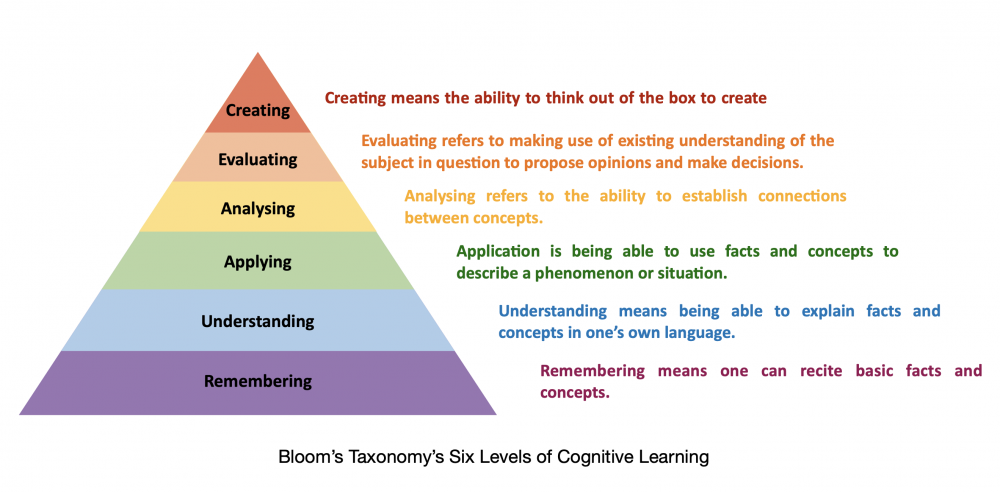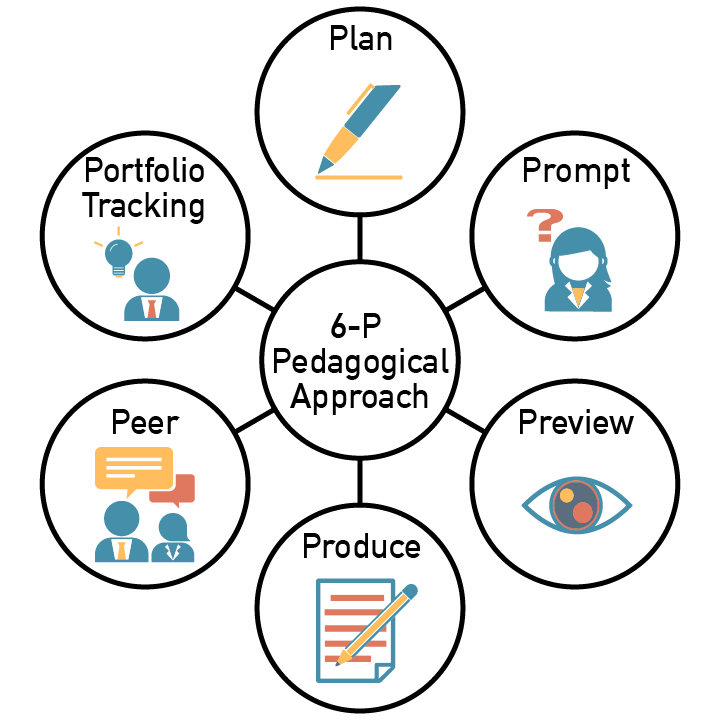An interview with Professor Stephen Chiu and Dr Henry So: Is the human and technology race a zero-sum game or a win-win scenario?
The release of ChatGPT-3 by OpenAI last November marked the beginning of a new era of technological developments. It is an era where generative AI tools and applications will gradually replace humans in the workplace and enter every facet of people’s lives. With the release of ChatGPT-4 by Open AI just a few months later – the most updated version of ChatGPT to date – as well as the launch of generative AI tools by other tech giants in response to the challenge posed by ChatGPT, the new technological era is advancing at astonishing speeds. These powerful generative AI applications have already sent tsunami waves across almost every sector of human society, so much so that even ordinary people have felt the heat of the new technology on social and print media, on the streets, at public forums, and on TV shows. They have been a source for excitement, as well as being the cause for alarm, worry, and fear.
The latest global sensation originated by ChatGPT and augmented by other generative AI tools is not going to fade out any time soon, and will have a huge impact on education. At FLASS, Professor Stephen Chiu Wing-kai, Chair Professor of Sociology and Associate Dean (International Engagement) of FLASS, and Dr Henry So Chi-fuk, a senior lecturer from the Department of Mathematics and Information Technology, have observed how technological developments have impacted the education sector over the years. For this issue of FLASS FORWARD, we interviewed them for their opinions on the viral sensation that is ChatGTP.
Professor Chiu: Admittedly, if students submit the answers provided by generative AI tools without critically evaluating the validity of the answers and without any editing input from themselves, learning will become meaningless. It actually amounts to academic plagiarism and has serious implications for academic honesty.
Dr So: Throughout history, the emergence of new technologies has always instilled excitement as well as worry and fear among people. At the onset of the pandemic more than three years ago, classroom lectures had to be switched out with virtual teaching methods. Some educators were worried that without proper supervision, students would find it easy to cheat during virtual lessons. Rolling back further, when Google relaunched itself as a search engine in 1997, some members of the academic community were panicked by the idea that the search engine would be misused by students and researchers, opening the floodgates to plagiarism.
The concerns over Google did not stop the search engine from becoming an integral part of education, and everyday life. On the contrary, the rapid development of new technological products, including Google and virtual-meeting applications, continues to challenge existing concepts about teaching and learning. The recent explosive developments of generative AI have only once again highlighted the long-standing tensions between the new and old.
Dr So: Undoubtedly, new developments in frontier technologies like generative AI are forcing the academic community to think about what exactly the essence of teaching and learning is. Here, I want to borrow Bloom’s Taxonomy, created by American educational psychologist Benjamin Bloom and revised in 2001, for my further arguments.

According to the revised Bloom’s Taxonomy, there are six levels of cognitive learning: remembering, understanding, applying, analysing, evaluating, and creating. The higher the learning level one can master, the more comprehensive and profound the learner’s understanding about the concerned subject is. Generative AI tools are competent in remembering, understanding and applying. Because they are supported by millions of data sources, they can perform pretty well in these areas. But when it comes to analysing, evaluating and creating, their performance is just ordinary.
Generative AI models follow the prompts from a user to extract related facts and figures from a huge database and then rearrange the extracted materials into a new piece of writing, whether it is a poem, a song, an advertisement, marketing materials, or even a novel. No doubt, this kind of “creative imitation” is impressive. That said, it is still—at least for the moment—far from a true rule-defying creative act by a free-spirited person.
I have little doubt that AI generative tools can help students to complete low-level learning tasks, such as remembering, comprehension and application. But to acquire higher-level cognitive abilities, students still need to learn how to evaluate different—usually conflicting—ideas, learn how to think creatively, and make wise judgments.

Professor Chiu: With the arrival of the 21st century, the world has entered a period of rapid digitisation and globalisation. Experts pointed out that in order to meet the challenges of the new century, people need to equip themselves with a set of 21st century skills. There are different versions of such skills with slight variations between them. These 21st century skills are usually divided into three groups: learning skills, digital literacy skills, and life skills. Learning skills are usually known as the “4C” skills: critical thinking, communications, collaboration, and creativity and innovation abilities. These skills are necessary for self-regulated, life-long learning.
I still believe that generative AI, at least for the present moment, is not an effective means to train up a student’s 4C learning skills. If students accept the answer provided by generative AI without giving it a second thought and without evaluating its contextual relevancy, they will never improve their critical thinking, communication, collaboration, and creativity and innovation abilities.
It also seems unlikely that generative AI can coach a person’s interpersonal skills in areas such as communication and collaboration. And it is generally believed that generative AI tools cannot build up one’s life skills, including flexibility, leadership, and social skills.
Dr So: The education sector was once worried that Google would discourage learning. Today, Google has become an all-knowing and omnipresent tool that students can use to quickly find materials that can help them understand complicated concepts. This helps to motivate them to learn and makes learning more effective. Of course, students can use Google to plagiarise. But as long as students demonstrate critical thinking when evaluating the accuracy of the information, incorporate their own thoughts in their answers, and use online resources responsibly by including citations properly, I still believe Google—as well as other emerging technologies—is doing the education sector more good than harm.
Technology is a double-edged sword. Whether it brings benefits or causes damages depends on how it is used. In the past, educators did not regard technology as bad and ugly. Instead, they worked hard to learn how to use technology to improve learning outcomes. In fact, educational technology was developed out of this urge, becoming a professional discipline that studies how to make good use of advanced technologies to facilitate teaching and learning.
Professor Chiu: I believe new generative AI technology will ultimately become part and parcel of teaching and learning. By making good use of artificial intelligence, learning will become much more interesting, effective and meaningful.
By making good use of artificial intelligence, learning will become much more interesting, effective and meaningful.
Hong Kong’s education system has long been criticised for its overemphasis on rote memorisation. Many people pointed out that such emphasis will hinder a student’s creativity and demotivate them from real learning. If students use generative AI tools to help them collect and organise data, and even prepare an initial answer to the concerned question, they can then spend more time on thinking about the logical connection between different parts of the answer and spare more thoughts on improving the flow and structure of the answer. This will make learning much more interesting and meaningful.

Professor Chiu: Our university understands the shortcomings of generative AI, but we also appreciate its limitless potential as an aid to teaching and learning. We encourage students to get in touch with these technologies as early as possible. Students may make use of generative AI tools in their coursework, as long as they make a declaration and articulate their reflections during the learning process. As long as these tools are used properly, they can help develop students’ independent and innovative thinking.
Dr So: On a practical level, the university has suggested a 6-P pedagogical approach to facilitate the assessment of students’ self-regulated learning: they need to write a plan (Plan), demonstrate prompting and questioning skills (Prompt), preview their drafts (Preview), produce formal writing (Produce), conduct peer reviews (Peer) and reflect on the learning process (Portfolio tracking).
As a result of technological advancements, machinery has replaced humans in various job roles, but this has raised our overall productivity and enabled people to live more comfortable and material-rich lives.
Dr So: When the Industrial Revolution happened more than 200 years ago, people at that time were pessimistic about the future of human beings, saying machines would replace humans and dominate the world one day. The truth is more than two centuries have passed, and human beings still dominate the planet. As a result of technological advancements, machinery has replaced humans in various job roles, but this has raised our overall productivity and enabled people to live more comfortable and material-rich lives.
Professor Chiu: History tells us that the so-called human and technology race is never a zero-sum game, where if one party wins, the other party must lose. Instead, there is complementary win-win relationship between human and technology. When the division of labour between technology and human beings is suitably adjusted, we are able to accomplish what neither side can achieve alone. Together, we can reach much higher ground.
We believe that no one can stop the development of technology. Instead of worrying unnecessarily, we need to double our efforts as educators to equip the young generation with what they need for the 21st century so that the next generation can use AI tools responsibly, and capitalise on all these groundbreaking technologies in the days ahead. Since students would most probably work with AI in their prospective work, whichever sectors they will find themselves in, we could not shirk our responsibility to help them brace for this unavoidable future.
Dr So: I think we should promote the application of generative AI in education and other sectors. The Education Bureau has been promoting AI education in primary and secondary schools, which has led to a large demand for AI teachers. Doubtlessly, AI is among the hottest technologies nowadays, if not the hottest. Many different industries have exhibited a huge demand for AI talents. In response to societal and manpower needs, EdUHK and FLASS have launched the Bachelor of Science (Honours) in AI and Educational Technology programme and the Master of Science in AI and Educational Technology programme. We are definitely going to do our fair share to buttress the application of generative AI technology.
Professor Chiu: Apart from teaching knowledge and skills, I think educators are moral agents who have the duty to stimulate students to reflect on ethical issues. By sharing with students how to make correct moral judgments in their daily lives, guiding students to reflect upon what honesty, diligence, perseverance, courage, compassion and other qualities are, and helping them to think about what is the meaning of life, and so on, educators still have an important role to play in the present education system.
Note: Please refer to the related press release for more information about the 6-P pedagogical approach “EdUHK Releases Pedagogical Approaches on AI Tools to Promote Self-regulated Learning”.



